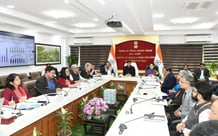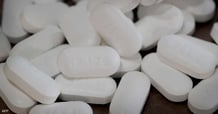COVID Immunity Certificate
The WHO notes that, firstly, the tool for conducting such an analysis is not yet perfect, and secondly, it has not been scientifically proven that the detected antibodies guarantee protection against re-infection.
The development of immunity to a specific pathogen is a natural protective function of the body. This process proceeds in several stages and usually takes from one to two weeks. Immediately after infection, our body mobilizes nonspecific bodies to attack the “enemy”, that is, launches a weapon that is “at hand” and is used against any virus. For someone, this process is so successful that a person does not notice the disease – hence the asymptomatic course.
Specifics of Immunity to COVID-19
Following a nonspecific response, a more targeted blow follows – the immune system produces antibodies that can destroy a specific virus. They are made up of a protein called immunoglobulin. At the same time, T cells appear, aimed at the removal of body cells already infected with the virus. This process is called cellular immunity. Thanks to the two stages of the immune response, a person recovers, and antibodies remain and protect against repeated infections with the same virus.
World Health Organization (WHO) Investigating
WHO experts are currently investigating how much we know about the immune response is consistent with the behaviour of the SARS-CoV-2 coronavirus that causes COVID-19. Studies conducted today largely confirm the presence of antibodies in the blood of patients with the disease. However, some have very few of them, which may indicate that in the case of COVID-19, cellular immunity (the second stage of the immune response) plays an extremely important role in recovery.
SARS-Cov-2 Antibodies not found
The conclusion is this : so far no research has provided evidence that the presence of antibodies to SARS-CoV-2 protects against reinfection with the same virus.
Laboratory methods for detecting antibodies to COVID-19 have not yet passed the appropriate test, which would confirm their reliability. Therefore, cases of “false positive” and “false negative” results are not ruled out. For example, according to the results of the analysis, the patient may be informed that he does not have antibodies, and a person who has not suffered this disease can be assured that antibodies are detected in his body, which means that he is protected from infection. In both cases, an error can lead to serious consequences.
The WHO is also concerned about the extent to which existing assay methods make it possible to distinguish antibodies to different coronaviruses. Currently, six more such pathogens are known. Four of them cause a common cold – you can imagine how common they are in the world around us. Two more lead to more serious illnesses known as Middle Eastern Respiratory Syndrome and SARS. People who have had any of these diseases may have antibodies that “intersect” with the SARS-CoV-2 immune response that causes COVID-19.
In many countries, authorities have begun mass screening for antibodies to COVID-19, and WHO is supporting the idea of such studies. They allow you to determine how common the infection is and to evaluate the risks associated with it. Nevertheless, at the moment, no one can be sure that the presence of antibodies is reliable protection against re-infection.
For this reason, WHO considers issuing a “certificate of immunity ” a premature measure. People with this document may consider themselves invulnerable to coronavirus and neglect recommendations to contain the infection, and this can complicate the fight against the epidemic.
The WHO emphasizes that these conclusions are based on the results of scientific research currently available. As soon as new verified information appears, WHO experts will update their recommendations.














